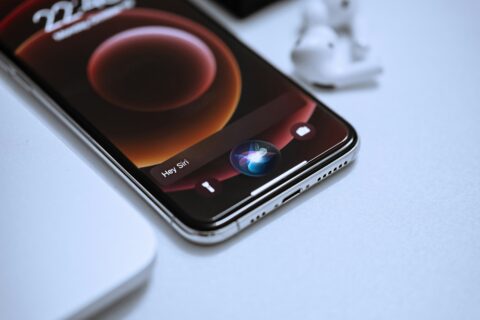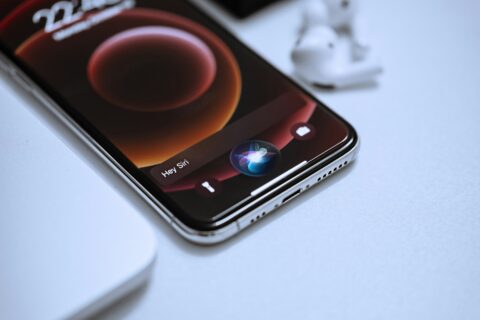Introduction to the evolution of smartphones and watches
The Evolution of Smartphones and Watches: How Technology Has Transformed Our Everyday Lives
Welcome to the digital age, where smartphones and watches have become an indispensable part of our lives. These sleek devices have come a long way since their inception, revolutionizing the way we communicate, entertain ourselves, and even stay productive. From early developments in mobile technology to the integration of smartwatches into our daily routines, let’s delve into the exciting journey that has shaped our modern world.
Picture this: it’s 1983, and you’re carrying around a brick-like contraption called a “mobile phone.” It may be bulky and limited in capabilities compared to today’s sleek smartphones, but it was undeniably revolutionary for its time. This marked the beginning of a new era – one filled with endless possibilities for communication on-the-go.
Fast forward to 2007 when Apple unveiled something truly groundbreaking: the iPhone. With its touchscreen interface, intuitive design, and access to countless applications (or “apps”), this pocket-sized device changed everything. Suddenly, we had instant access to information at our fingertips – from checking emails on-the-fly to navigating unfamiliar streets with GPS guidance.
As smartphone technology advanced at lightning speed over the years that followed its debut like improved camera quality advancements such as facial recognition software that allowed us more secure methods for unlocking our phones or making payments via biometric authentication. Today’s smartphones are not just communication tools; they are multi-functional powerhouses capable of so much more.
But it didn’t stop there! Enter smartwatches – wearable gadgets designed to complement our smartphones seamlessly. These wrist-bound wonders allow us to receive notifications discreetly without reaching for our pockets constantly. They can track fitness goals diligently or control music playback effortlessly while adding style points to any outfit.
Think about how these technological marvels have transformed your day-to-day life. Communication has never been easier; staying connected with loved ones is just a tap away. Entertainment has become more immersive, with streaming services and gaming apps providing endless
Early developments in mobile technology
Mobile technology has come a long way since its inception, transforming from basic communication devices to the powerful smartphones we have today. In the early days, mobile phones were bulky and had limited functionality. They were primarily used for making calls and sending text messages.
As technology advanced, so did mobile phones. The introduction of 2G networks allowed for faster data transfer speeds, paving the way for basic internet browsing capabilities. This opened up new possibilities for accessing information on the go.
The launch of 3G networks brought even more advancements in mobile technology. It enabled faster internet speeds and introduced features like video calling and multimedia messaging. Suddenly, our phones became not just communication tools but also entertainment devices.
Then came the game-changer: the first smartphone was unveiled to the world. With its touchscreen interface and app ecosystem, it revolutionized how we interacted with our devices. Smartphones became pocket-sized computers that could handle tasks previously reserved for desktops or laptops.
These early developments laid the foundation for what was to come – a technological revolution that would transform every aspect of our lives. From social media apps connecting us with friends around the globe to navigation systems guiding us through unfamiliar streets, smartphones have become an integral part of modern existence.
But it wasn’t just about smartphones – wearable technology also made its mark during this time with the introduction of smartwatches. These sleek accessories added another layer of convenience by allowing users to access notifications, fitness tracking features, and even make phone calls right from their wrists.
Today’s smartphones are equipped with cutting-edge features such as facial recognition software, augmented reality capabilities, and artificial intelligence integration – advancements that seemed unimaginable just a few years ago! Mobile technology continues to evolve at an astonishing pace as companies strive to stay ahead in this competitive industry.
However much we appreciate these innovations in mobile technology; there are valid concerns about our increasing reliance on these devices too – privacy issues being one major concern among many. It’s important to strike a balance between leveraging the benefits of technology and
The launch of the first smartphone and its impact on society
The launch of the first smartphone was a game-changer in society, revolutionizing how we communicate and interact with technology. With its touchscreen capabilities and advanced features, it marked the beginning of a new era.
Gone were the days of simple flip phones and limited functionality. The first smartphone brought together various technologies like never before, combining phone calls, text messaging, email access, and internet browsing all in one device.
This innovation had an immediate impact on society. Suddenly, people could stay connected 24/7, accessing information at their fingertips. Communication became faster and more efficient as emails replaced handwritten letters and instant messaging apps allowed for real-time conversations.
The introduction of mobile apps further transformed our everyday lives. From social media platforms to gaming applications to productivity tools – there seemed to be an app for everything! Smartphones became indispensable companions that helped us navigate our personal and professional lives with ease.
But this technological leap forward also came with its challenges. Some argue that smartphones have made us overly reliant on screens while diminishing face-to-face interactions. Concerns about privacy and security also emerged as our personal data became increasingly vulnerable to cyber threats.
Despite these concerns, there’s no denying the profound impact smartphones have had on society. They’ve changed how we connect with one another across distances; they’ve opened up endless possibilities for learning, entertainment, shopping – you name it!
As technology continues to evolve at a rapid pace, it’s exciting to imagine what lies ahead for smartphones – from foldable screens to augmented reality experiences. One thing is certain: the first smartphone paved the way for a future where connectivity knows no bounds!
Advancements in smartphone technology and their influence on daily tasks
Advancements in smartphone technology have revolutionized the way we approach our daily tasks. With each passing year, smartphones become more powerful and versatile, offering a multitude of features that make our lives easier.
One area where smartphones have had a significant impact is in communication. Gone are the days of relying solely on phone calls and text messages. Now, we can instantly connect with people through various messaging apps, video calls, and social media platforms. This has made staying in touch with loved ones near or far seamless and convenient.
Smartphones have also transformed the way we entertain ourselves. With high-definition displays and powerful processors, these devices allow us to stream movies and TV shows on-the-go, play immersive games with stunning graphics, and listen to music at any time. The entertainment possibilities are endless.
In terms of productivity, smartphones have become indispensable tools for managing our daily tasks. From organizing schedules to setting reminders, accessing important documents on cloud storage services to collaborating with colleagues remotely – all can be done conveniently from the palm of our hands.
Moreover, advancements in smartphone cameras have turned everyone into amateur photographers. The quality of photos captured by today’s phones rivals that of professional cameras from just a few years ago. We no longer need separate devices for photography; everything is within reach on our smartphones.
The influence of advances in smartphone technology extends beyond personal use as well. Many industries rely heavily on mobile applications for increased efficiency and convenience – healthcare providers track patient data electronically via specialized apps while businesses streamline operations using project management software accessible through smartphones.
It is fascinating how much power lies within these compact devices that fit snugly into our pockets or purses! As technology continues to evolve rapidly, there’s no telling what new innovations will emerge in the future – artificial intelligence integration? Virtual reality capabilities? The possibilities are exhilarating!
Though it cannot be denied how deeply ingrained smartphones have become in every aspect of modern life – transforming communication habits as well as our approach to entertainment and productivity. They have truly become an extension of
The introduction of smartwatches and their integration into our lives
The introduction of smartwatches has revolutionized the way we interact with technology on a daily basis. These sleek and sophisticated devices have seamlessly integrated into our lives, becoming an essential accessory for many individuals.
Smartwatches offer a range of features that go beyond simply telling time. With their ability to connect to our smartphones, they provide instant access to notifications, messages, and calls right on our wrists. This convenience allows us to stay connected without constantly reaching for our phones.
Moreover, smartwatches have become powerful fitness companions. They can track our steps, monitor heart rate, and even analyze sleep patterns. This valuable data helps us make informed decisions about our health and well-being.
In addition to their practical functionalities, smartwatches also serve as fashion statements. With customizable watch faces and interchangeable bands, these devices allow us to express ourselves while staying connected.
Furthermore, smartwatches play a significant role in enhancing productivity. From setting reminders and timers to accessing calendars and apps, these wearable gadgets streamline everyday tasks with ease.
Despite some initial skepticism surrounding their utility or necessity compared to smartphones themselves (which many people already carry), smartwatches have quickly gained popularity due to their convenience and versatility in various aspects of life.
As technology continues advancing at a rapid pace, it will be fascinating to see how future iterations of smartwatches further integrate into our lives – perhaps becoming even more integral than they are today!
How smartphones and watches have changed communication, entertainment, and productivity
Smartphones and watches have revolutionized the way we communicate, entertain ourselves, and stay productive in our daily lives. Communication has become instantaneous with the advent of smartphones. Gone are the days when we had to rely on landline phones or wait for someone to check their email. With just a few taps on our smartphone screens, we can send text messages, make video calls, and connect with people from all over the world.
Entertainment has also undergone a significant transformation thanks to smartphones and watches. We no longer need separate devices for music players, cameras, or gaming consoles. Smartphones have merged all these functionalities into one compact device that fits into our pockets.
Moreover, social media platforms like Facebook, Instagram, and Twitter have become accessible through mobile apps on smartphones and watches. We can now share moments from our lives instantly with friends and family by simply taking a photo or recording a video.
In terms of productivity, smartphones have made it easier than ever to stay organized and efficient. We can use various productivity apps to manage tasks, set reminders, create notes on-the-go – all within seconds using our fingertips.
Watches too have played their part in enhancing communication by allowing us to receive notifications directly on our wrists without having to reach for our phones constantly. They provide quick access to essential information such as messages or incoming calls while keeping us connected even during busy times.
When it comes down to entertainment features on smartwatches though they may not be as extensive as those found on smartphones but they still offer convenience like being able to control music playback directly from your wrist or tracking your fitness activities without carrying an extra device around.
Both smartphones and watches have transformed how we communicate with others including long-distance relationships through instant messaging services; entertainment options such as streaming videos online; staying productive throughout the day by managing tasks efficiently – all at fingertips! The possibilities seem endless as technology continues evolving rapidly every year bringing new innovations along its path.
Criticisms and concerns about our reliance on technology
Criticisms and concerns about our reliance on technology have become increasingly prevalent in today’s society. One of the main critiques revolves around the impact technology has on our interpersonal relationships. With smartphones always at our fingertips, there is a growing fear that we are losing genuine connections with those around us.
Another concern is the addictive nature of technology. It’s no secret that many people struggle to put down their devices and disconnect from the virtual world. This constant need for stimulation can lead to reduced productivity, increased anxiety, and even sleep disturbances.
Privacy is yet another area of concern when it comes to our reliance on technology. With every app we download and every website we visit, personal data is being collected without many users fully understanding or consenting to it. The potential for this information to be misused or accessed by unauthorized individuals raises valid apprehensions.
Additionally, there are worries about the impact of excessive screen time on physical health. Spending hours hunched over a smartphone or watch can lead to posture problems, eye strain, and musculoskeletal issues.
Some critics argue that relying too heavily on technology inhibits creativity and critical thinking skills. Instead of using our own minds to solve problems or generate ideas, we often turn directly to search engines for answers.
While these concerns should not be dismissed entirely, it’s important to remember that technology also brings numerous benefits into our lives. It enhances communication capabilities, provides access to vast amounts of information instantly, increases convenience in various tasks – just think about online shopping! – and offers entertainment options like never before.
As with any tool or resource in life, finding balance is key when it comes to utilizing technology responsibly
The future of smartphones and watches: What can we
The future of smartphones and watches: What can we expect?
As technology continues to advance at an astonishing pace, it’s intriguing to ponder what the future holds for smartphones and watches. With each passing year, these devices become more powerful, versatile, and seamlessly integrated into our daily lives. So, what can we expect in the coming years?
One exciting possibility is the further convergence of smartphones and smartwatches. As these two devices continue to evolve, they may eventually merge into a single all-encompassing wearable device that combines the best features of both worlds. Imagine a smartwatch with a flexible display that unfolds into a smartphone when needed – truly a game-changer!
Another area of development is augmented reality (AR) and virtual reality (VR). While still in their infancy stages, AR and VR have already made significant strides in enhancing user experiences on smartphones. In the future, we can anticipate even more immersive AR/VR applications that blur the line between real and digital worlds.
Furthermore, artificial intelligence (AI) will play an increasingly prominent role in shaping smartphones and watches’ capabilities. AI-powered personal assistants will become smarter and more intuitive than ever before, anticipating our needs based on patterns from our daily routines.
Additionally, advancements in battery technology are crucial for improving both convenience and sustainability. We might see longer-lasting batteries or even breakthroughs such as self-charging mechanisms or alternative energy sources that eliminate the need for regular charging altogether.
Security measures will also continue to evolve as hackers become increasingly sophisticated. Biometric authentication methods like facial recognition or iris scanning may become standard features on future devices to ensure data privacy remains intact.
As 5G networks roll out globally over timeframes spanning several years ahead; this ultra-fast connectivity will revolutionize how we interact with our devices—enhancing download speeds significantly while enabling new possibilities such as real-time streaming high-resolution content or seamless IoT integration.
In conclusion,
The evolution of smartphones and watches has undeniably transformed our everyday lives. From the early developments in







